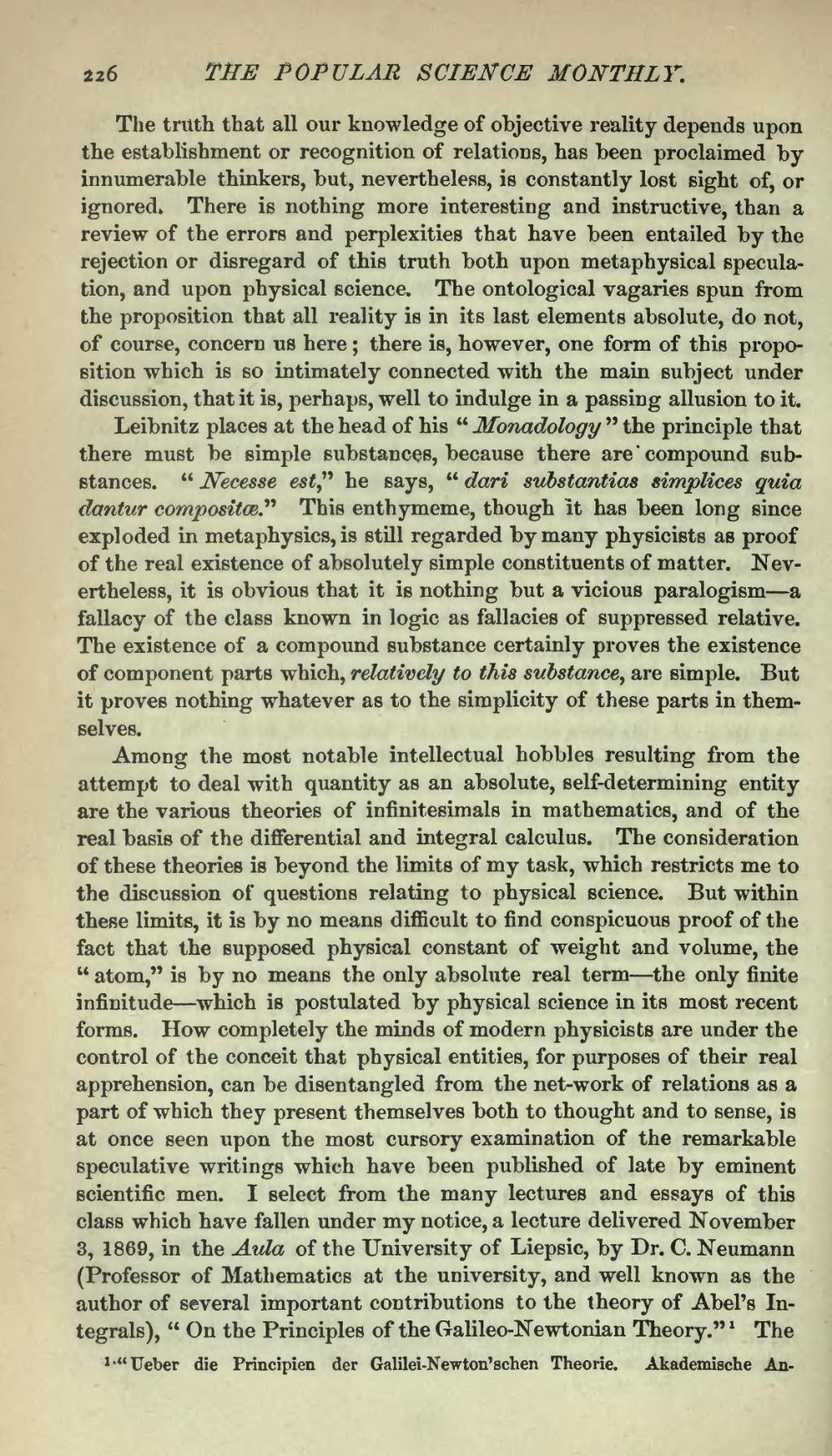The truth that all our knowledge of objective reality depends upon the establishment or recognition of relations, has been proclaimed by innumerable thinkers, but, nevertheless, is constantly lost sight of, or ignored. There is nothing more interesting and instructive, than a review of the errors and perplexities that have been entailed by the rejection or disregard of this truth both upon metaphysical speculation, and upon physical science. The ontological vagaries spun from the proposition that all reality is in its last elements absolute, do not, of course, concern us here; there is, however, one form of this proposition which is so intimately connected with the main subject under discussion, that it is, perhaps, well to indulge in a passing allusion to it.
Leibnitz places at the head of his "Monadology" the principle that there must be simple substances, because there are compound substances. "Necesse est," he says, "dari substantias simplices quia dantur compositœ." This enthymeme, though it has been long since exploded in metaphysics, is still regarded by many physicists as proof of the real existence of absolutely simple constituents of matter. Nevertheless, it is obvious that it is nothing but a vicious paralogism—a fallacy of the class known in logic as fallacies of suppressed relative. The existence of a compound substance certainly proves the existence of component parts which, relatively to this substance, are simple. But it proves nothing whatever as to the simplicity of these parts in themselves.
Among the most notable intellectual hobbles resulting from the attempt to deal with quantity as an absolute, self-determining entity are the various theories of infinitesimals in mathematics, and of the real basis of the differential and integral calculus. The consideration of these theories is beyond the limits of my task, which restricts me to the discussion of questions relating to physical science. But within these limits, it is by no means difficult to find conspicuous proof of the fact that the supposed physical constant of weight and volume, the "atom," is by no means the only absolute real term—the only finite infinitude—which is postulated by physical science in its most recent forms. How completely the minds of modern physicists are under the control of the conceit that physical entities, for purposes of their real apprehension, can be disentangled from the net-work of relations as a part of which they present themselves both to thought and to sense, is at once seen upon the most cursory examination of the remarkable speculative writings which have been published of late by eminent scientific men. I select from the many lectures and essays of this class which have fallen under my notice, a lecture delivered November 3, 1869, in the Aula of the University of Liepsic, by Dr. C. Neumann (Professor of Mathematics at the university, and well known as the author of several important contributions to the theory of Abel's Integrals), "On the Principles of the Galileo-Newtonian Theory."[1] The
- ↑ "Ueber die Principien der Galilei-Newton'schen Theorie. Akademische An-

